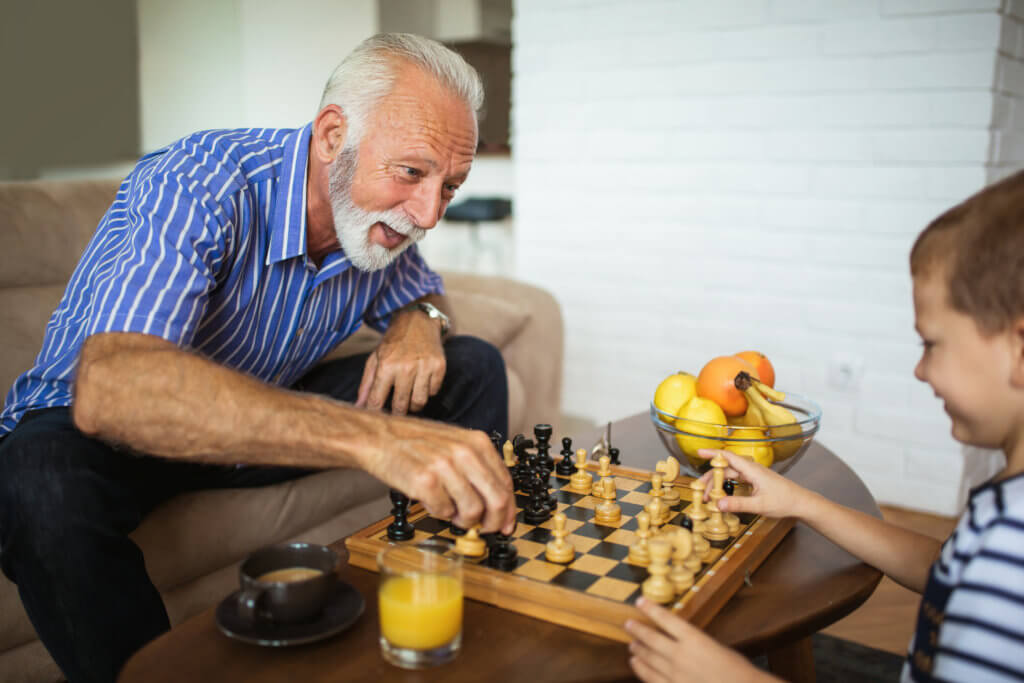MELBOURNE, Australia — Engaging in fun activities such as crossword puzzles, games, and even educational classes can protect older adults against Alzheimer’s disease, a new study reveals. Scientists in Australia have found that these simple mental activities strengthen the brain by improving a person’s cognitive reserve.
“These results suggest that engagement in adult literacy, creative art, and active and passive mental activities may help reduce dementia risk in late life,” according to researchers, led by Professor Joanne Ryan from Monash University, in the journal JAMA Network Open. “In addition, these findings may guide policies for geriatric care and interventions targeting dementia prevention for older adults.”
Activities such as adult literacy courses were found to reduce dementia risk by 11 percent, while playing intelligence-testing games led to a nine-percent reduction. Engaging in painting, drawing, or other artistic hobbies displayed an association with a seven-percent decrease in dementia risk. Similar benefits were observed for activities like reading books, newspapers, or magazines, watching TV, and listening to music or the radio.

The findings are based on a study that tracked over 10,000 individuals 70 and older in Australia for more than a decade. The results showed that the benefits applied equally to men and women, regardless of their early education and socioeconomic status.
“In this study, adult literacy and active mental activities showed the largest associations with reduced risk of dementia, possibly reflecting greater cognitive stimulation. These activities involve proactive engagement, critical thinking, logical reasoning, and social interaction,” the researchers write.
Engaging in these mentally stimulating activities can increase the number of neurons and connections in the brain, leading to more efficient brain networks.
“Adult literacy comprises class attendance, computer usage, and writing, all of which require the processing and storage of new information, which decelerates neurobiological aging and protects against dementia,” Prof. Ryan’s team adds. “Writing is a complex process that utilizes most cognitive abilities and involves transferring thoughts into texts.”
Playing games, cards, or chess with others can improve social interactions and involve complex strategies and problem-solving. These activities utilize various cognitive domains, including memory, spatial skills, calculation, executive function, attention, and concentration.
The study could potentially lead to the development of specific cognitive training programs. With the number of dementia cases expected to triple to over 150 million by 2050, there is a growing focus on lifestyle interventions to slow or prevent the progression of the disease.
Scientists emphasize the need for new strategies to prevent or delay dementia onset, as current treatment approaches have not been completely effective. Cognitive reserve, which refers to the brain’s ability to resist age-related damage, can be built through engaging activities. Surprisingly, friendships, social activities, and outings were not associated with a reduced risk of dementia in this study. This could be due to the small proportion of participants who reported feeling lonely or isolated.
The researchers suggest tailoring cognitive aging strategies based on social engagement and health status to maximize the use of health resources.
You might also be interested in:
- Best Board Games For Adults: Top 5 Titles Most Recommended Across Expert Reviews
- Crossword puzzles better at preventing memory loss than video games
- Your eye fluid could reveal warning signs for Alzheimer’s or brain damage
South West News Service writer Mark Waghorn contributed to this report.

